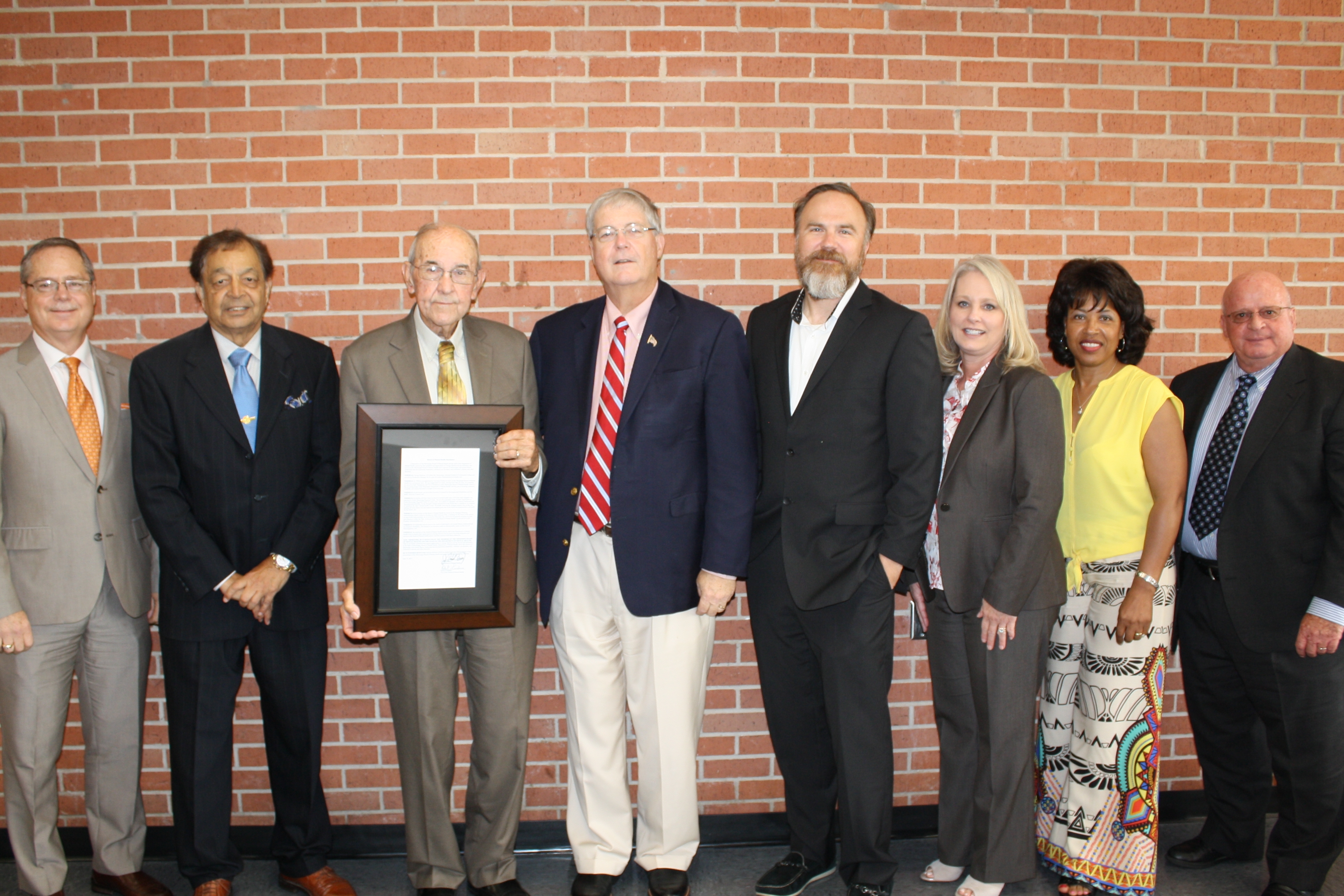Board of Mental Health honors outgoing member George Harrison
The Board of Mental Health recently passed a resolution honoring Mr. George Harrison, of Coffeeville, whose term that ended June 30 brings an end to more than 20 years of service to Mississippi’s mental health system.
Mr. Harrison was appointed in 1996 by Gov. Kirk Fordice and was reappointed two subsequent times, once by Gov. Ronnie Musgrove and once by Gov. Haley Barbour. As a member, he has served terms as both Chair and Vice Chair of the Board of Mental Health, the governing board of the Mississippi Department of Mental Health. Mr. Harrison previously served on the Governor’s Council for Developmental Disabilities. He and his wife have been involved in the mental health field since 1974, when their daughter was admitted to North Mississippi Regional Center.
“As a parent of a daughter who had an intellectual and developmental disability, he has brought a unique perspective to the Board that is valuable as we continue to transform the state’s mental health system,” the resolution recognizing him reads. “Personally knowing the struggles parents face as they are making decisions about care and supports has helped guide him as the Board developed policies and goals for the future.”
In his position on the Board of Mental Health he served on the Strategic Planning Subcommittee which worked to develop the DMH Strategic Plan, a roadmap for the future of the agency. As part of the Subcommittee, he reviewed the Plan each year, and reviewed quarterly progress to goals and objectives within the Plan. In his position on the Board of Mental Health, he also served on the Property Subcommittee.
“We wish to express their appreciation to George Harrison for his never wavering dedication and service to the Board of Mental Health and to wish him success in all future endeavors,” said Diana Mikula, DMH Executive Director. “His leadership and devotion to the needs of individuals with mental illness, intellectual and developmental disabilities, and substance use disorders made an immeasurable impact on the lives of Mississippians.”

